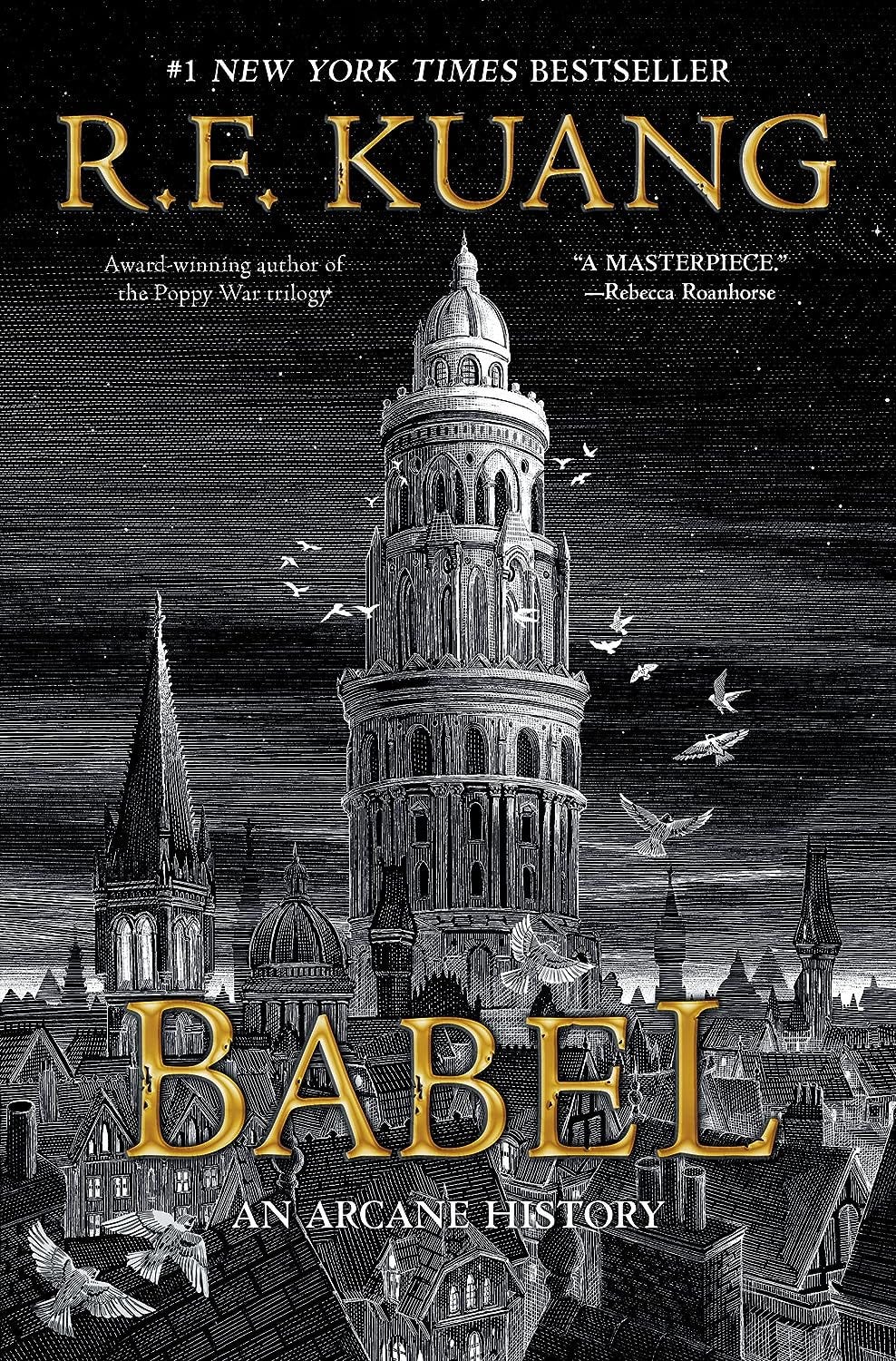Hello Missive Readers,
Autumn is here. For some of you, that means open season for Pumpkin Spice Lattes. But for the eternal students among us, autumn will always spark that back-to-school intellectual curiosity we had as kids. Which is why this month I’ve decided to pick a new novel that blends a powerful post-colonial critique with the “Dark Academia” genre that has taken BookTok by storm in recent years.
PLUS - This month I’m opening up the book club FOR FREE for ALL subscribers. Read on…
But Marko — what is Dark Academia?
For those of you who are not chronically online… press play on this playlist, grab your #PSL, and allow me to put on my tweed jacket, and adjust my non-prescription glasses, and give you the TL;DR on #darkacademia. 📚✨
🔍 TL;DR — Dark Academia:
Dark academia isn't merely a genre; it's an all-encompassing aesthetic – a lifestyle that Gen Z has artfully crafted around the allure of studying the classics in Hogwarts-like universities. Imagine the nostalgia of vintage bookstores with creaky wooden floors, the charm of sipping espresso in a dimly lit library, or the thrill of pondering profound philosophical questions… or just walking to cafes carrying a tote-bag with a classic novel that you may never actually finish.
Don’t worry - this month’s recommendation is not sus, fam. That’s how the kids speak these days, right? #AgingMillennial
The origin of this subculture can actually be traced back to The Secret History, a 1992 novel by Donna Tartt that tells the story of six classics students at Hampden College as they try to solve the mystery of their friend’s murder. But this month’s book is not a Dark Academia read, per se.
Babel by Rebecca F Kuang does take place in a university (Oxford), it does involve a diverse set of characters who form a chosen family, and it does have a magical feel, it’s also a powerful work of historical fiction with a striking post-colonial critique.
And as fall arrives, I really can’t wait to dive into this book.
📚 About "Babel":
Babel opens in 1828 in cholera-stricken Canton, China. An infant Chinese boy is on the verge of death when an Englishman takes him to London, where the boy is renamed Robert Swift and educated in classical languages - Latin, Greek, and Chinese - preparing him to study at “Babel,” Oxford’s school of translation.
It’s the peak of the British Empire, and the crown is investing heavily in understanding the people, cultures, and languages they’ve amassed into their expanding colonial project. Babel is the heart of Britain’s study of foreign languages, where experts toil at “silver-working,” or the art of turning lost-in-translation words into “silver.” But the end product of translation is not understanding - it’s the power to control and manipulate that undergird the entire colonial project.
Robert, or “Robin,” was raised in England but is Chinese. He quickly befriends a group of other outsiders - Ramiz Mirza, Letitia Price, and Victoire Desgraves, and the four form a family on the margins of Oxford’s mostly white, male, power structure. They share a love for the pursuit of knowledge — as well as the conflicted realization that their work is being used to subdue and exploit their motherlands.
The four decide to secretly join the Hermes Society, which steals the knowledge of Babel back to the colonies. And when Britain declares war on China, Robin and his friends must must grapple with a profound question: Can powerful institutions be changed from within, or does revolution always demand a price?
Hint: the subtitle is “Or the Necessity of Violence: An Arcane History of the Oxford Translators’ Revolution.”

Rebecca F. Kuang wrote this book based upon her personal experience as an emigrant from Guangzhou, China and a graduate student at Oxford. She rose to fame through her first novel, The Poppy War, which became the first in a trilogy inspired by her undergraduate studies in Chinese history at Georgetown. Babel debuted at the top of the NYT Best Seller List and won the 2022 awards of Blackwell’s Book of the year and the Nebula Award for Best Novel.
🌟 Praise for Babel: Critics have hailed Babel as a literary marvel, a profound exploration of violence, etymology, colonialism, and the intersections between them. It's a scathing indictment of the colonial enterprise and a fiery revolution all rolled into one. Kuang's depth of knowledge in history and linguistics shines, making Babel a masterpiece in every sense of the word.
🗣️ Join the Discussion: Prepare for engaging discussions on the themes of language, power, and rebellion as we dissect the intricate world of Babel. The book club meeting for Babel promises to be a thought-provoking exploration of academia, colonial critique, and the true power of language.
🔐 : Unlocking the Book Club Zoom to All - This month, I’m opening up access to our Zoom book club meeting to all readers, where we'll delve deeper into the intricacies of Babel and share our interpretations of its profound themes.
📆 Save the Date: Our book club discussion for Babel will take place in early November, so mark your calendars and keep your eyes out for an upcoming email.
Let's embrace the allure of dark academia this autumn and dive into Babel together.
Happy reading,
Marko







